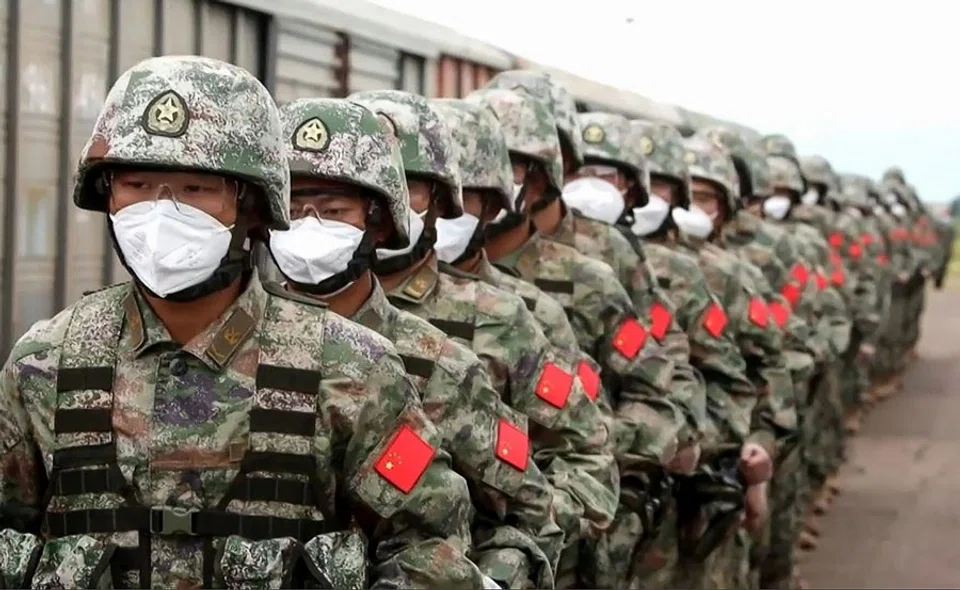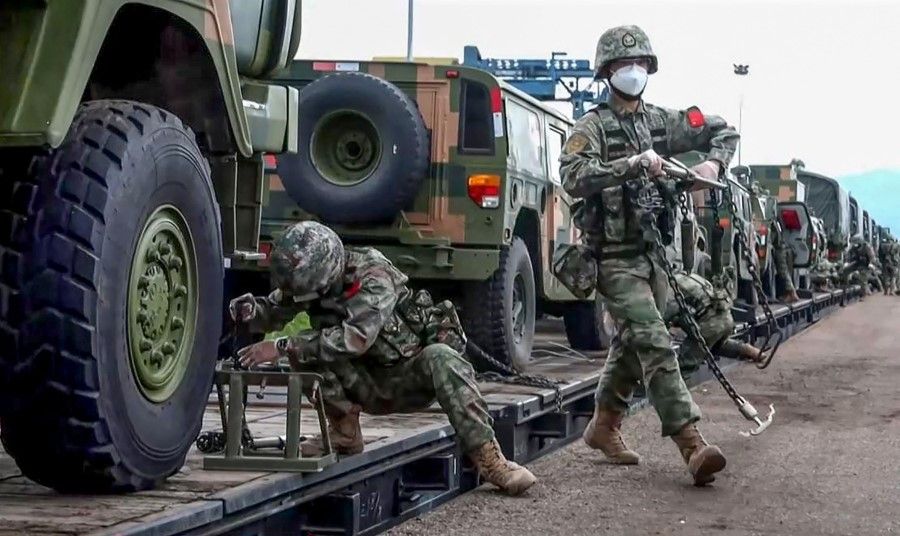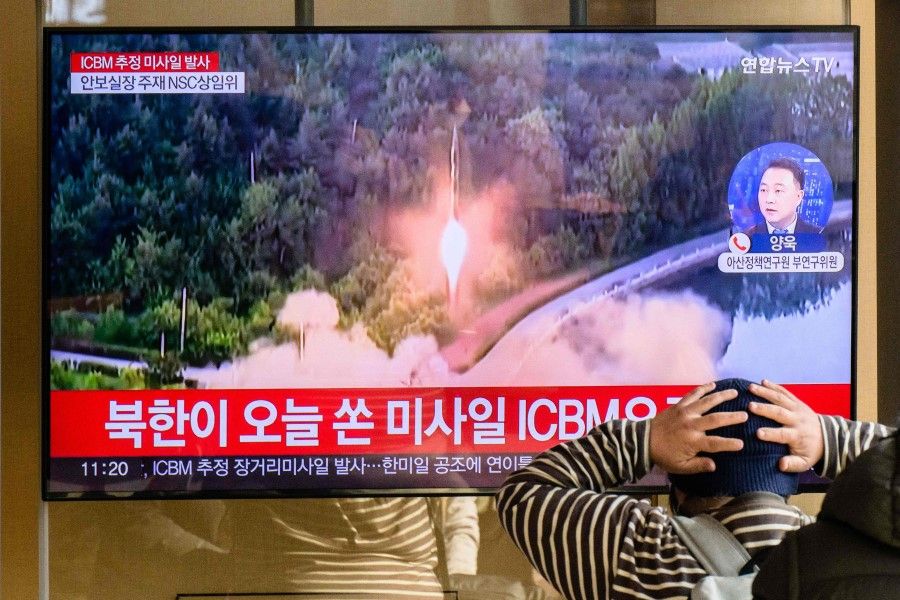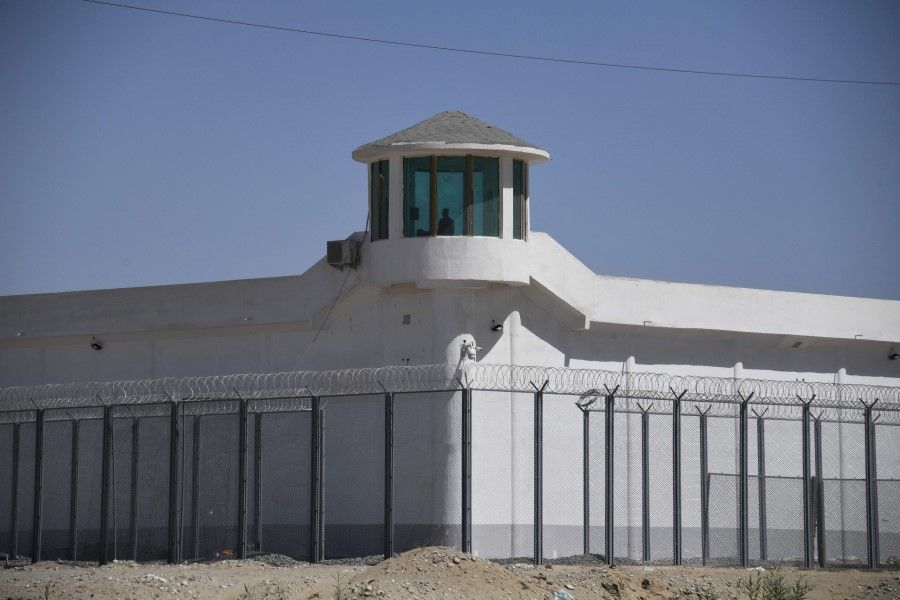Will China's military exercises with SCO countries and Russia help it build a regional security order?

China's joint military exercises in the past two decades have included the multilateral, biennial Peace Mission exercises with Shanghai Cooperation Organisation (SCO) countries, and the bilateral, annual Joint Sea exercises with Russia. China has also participated in a few bilateral and multilateral joint manoeuvres, including the command-post exercises on aerospace security with Russia in 2016 and 2017, the joint annual aerial strategic patrol with Russia since 2019, and a few manoeuvres that were traditionally preserved for the former Soviet states.
... China's security cooperation relationships with SCO countries and Russia are characterised by the absence of mutual defence obligations against external threats in times of crisis and war.
Tenor of China's joint exercises with SCO and Russia
The US-led, Western-style alliances and exercises are largely driven by critical external security threats from a third country or a group of countries. In comparison, China's joint exercises with SCO countries and Russia are primarily motivated by concerns about domestic and intramural threats emanating from within the non-state actors inside these countries. While some joint China-Russia manoeuvres may be intended against external threats, they appear highly symbolic since they are relatively short and intermittent and do not reflect a high level of interoperability of the forces involved.
Most importantly, China's security cooperation relationships with SCO countries and Russia are characterised by the absence of mutual defence obligations against external threats in times of crisis and war.

Evidently, the Chinese notion of "strategic partnership", which prioritises strategies to deal with domestic and intramural security threats but not external threats, accounts well for these exercises. China's 2019 white paper titled "China's National Defense in the New Era", for instance, explicitly states that "China advocates partnerships rather than alliances and does not join any military bloc".
... "strategic partnership" offers China the autonomy and flexibility that are absent in tight military alliances.
Chinese reluctance to join military alliances is particularly reflected in the observations of Chinese analysts on the US-led East Asian alliances and in the critical lessons that China has learned from its own recent history. These observations and lessons may have convinced China's foreign policy decision makers that "strategic partnership" offers China the autonomy and flexibility that are absent in tight military alliances.
Trust can be undermined in military alliances
The trust that undergirds any military alliance relationship can be undermined by the critical issues of alliance management including burden-sharing, reciprocity, entrapment and abandonment. Chinese analysts point out that some US analysts are concerned about the lack of reciprocity and burden-sharing by Japan and South Korea in the US-Japan and US-South Korea security alliances. They claim that these analysts worry about Japan and South Korea "free-riding" on US security guarantees.
They also observe that American analysts are concerned about a possible US entrapment in a military conflict in East Asia that may cost the US far more than necessary and justified. Meanwhile, Japan and South Korea may fear being abandoned by the US. Without a critical and imminent common threat, these issues may complicate the management of the alliance relationships. These difficulties may undermine the trust that undergirds these alliances, thus making these alliances unsustainable.
Since China is still a nominal ally of North Korea, China fears being entrapped by North Korea in a critical nuclear crisis on the Korean peninsula.

According to Chinese analysts, China has also learnt its lessons from managing formal alliances with the Soviet Union, North Vietnam and North Korea during the Cold War. China's economic and security interests, for instance, suffered greatly after the Soviet Union abandoned China by terminating its massive economic and military assistance to China in the late 1950s and early 1960s. Similarly, China provided generous military and economic aid to North Korea and North Vietnam in their wars against the US, but neither country reciprocated. On the contrary, China's security interests were severely undermined by the deterioration of its relations with Vietnam in the late 1970s and with North Korea following the end of the Cold War.
Since China is still a nominal ally of North Korea, China fears being entrapped by North Korea in a critical nuclear crisis on the Korean peninsula. Such a crisis may trigger nuclear proliferation and arms race in the region and even a military conflict on the peninsula that may severely harm China's security interests. Chinese security analysts are particularly disturbed by North Korea's risky behaviour including missile and nuclear tests on which China has never been consulted.
A regional security order in Central Asia
The partnership-based security cooperation relationships with SCO countries and Russia clearly represent China's attempt to build a regional security order in Central Asia. Ethnic and religious unrest in Xinjiang since the 1990s, for instance, have motivated Beijing to think about developing a sustainable regional security order that can reassure the Chinese people and China's close neighbours about border and internal security and stability.
Such a security order can deny safe havens for Uighur militants from Xinjiang attempting to build links and conduct training with other Islamic militant groups across Central Asia.

Such a security order can deny safe havens for Uighur militants from Xinjiang attempting to build links and conduct training with other Islamic militant groups across Central Asia. This security order can also help to create a secure and stable environment in regional countries for developing their economies.
Successful economic development, particularly through the Belt and Road Initiative (BRI)-based infrastructure development, can contribute to economic prosperity and social and political stability, thus improving the odds of regime survival, the top concern of the leaders of the Central Asian states. The China-SCO-Russia joint military exercises thus may serve this need well.
Synergy between security and economy
Moreover, China's "partnership"-based relationships may have provided a comprehensive approach that integrates enhanced security with economic development. The China-SCO-Russia joint military exercises, for instance, are carried out simultaneously with the BRI projects in Central Asia. This integrated approach is clearly intended to create synergy between security and economic development, thus contributing to enhanced security, economic growth and prosperity, and social and political stability.
... this non-interference approach reflects a critical limit to a possible China-dominated security architecture.
Finally, in developing the SCO security architecture, China has generally followed its commitment to non-interference in other countries' internal affairs. Its reluctance to interfere and control thus has won the "grudging fealty" of Central Asian countries.
On the other hand, this non-interference approach reflects a critical limit to a possible China-dominated security architecture. The popular uprisings in Kazakhstan in January 2022, for instance, were put down by the Russian paratroopers through the architecture of the Russia-dominated Collective Security Treaty Organisation, and not that of the SCO.
These uprisings do show that domestic and intramural threats are more critical to regime survival in Central Asian countries. China's reluctance to "interfere" in the internal affairs of these countries, however, may have reduced the effectiveness and credibility of a China-centred regional security order in Central Asia.
An initial version of this article was first published as an East Asian Institute Background Brief.
